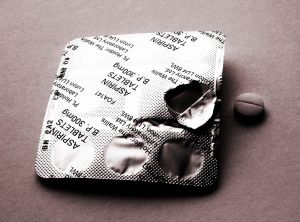Officials with the Consumer Product Safety Commission (CPSC) are still working to help Americans stay safe around dangerous products that can cause serious harm in our household. As one of the longest-running campaigns, officials with the CPSC are still proudly pushing National Poison Prevention Week (NPPW).

One of the most effective moves made through this campaign is the standard requiring child-resistant closures on specific medicines and other households chemicals. Unfortunately, companies don’t always live up to the standard.
Our Boston child injury attorneys understand that our children are curious and don’t always understand the risks that are associated with specific (and dangerous) chemicals and medicines in our home. For that reason, this campaign was launched about 50 years ago. Today, there are about 40 children that are killed because of these unintentional poinsonings each and every year. Although we’re making progress is working to prevent these kinds of accidents, we’ve got quite a ways left to go.
“Products that pose a toxic risk to children need to be locked up and put away from their reach,” said CPSC Chairman Inez Tenenbaum.
In recent weeks, the CPSC has issued warning about the poisoning dangers that are involved with coin-sized batteries. They also released warnings for single-load liquid packets for our laundry. Children are getting their hands on these products, which can lead to serious or even fatal injuries.
Officials with the CPSC asked battery makers to make tougher packaging for their batteries and laundry detergent in particular, and to make packaging less appealing to children.
Our young children land in the hospital and in emergency care because of ingesting and swallowing these kinds of products. And the CPSC has a message to parents: “These incidents are preventable.”
Parents should keep all dangerous products out of reach of children. Don’t even let them have the chance to access these products. Although they may have “child protective” sealing, there’s no telling when these seals will fail.
While you’re using these products, you never want to let your children leave your sight. You know how sneaky our little ones can be. Keep an eye on them.
It’s also a good idea to keep the original labeling on your products, not only for your own safety, but for the safety of your children, too. With that being said, it’s important that you read the labeling for each use. With medicines, you want to make sure that you’re delivering the proper dosage. And don’t trick your children into taking the medicine by referring to it as “candy.” Always call it “medicine” and tell them what it’s for. Explain to them what medicine is, what it’s used for and the dangers of being consumed when unnecessary.
It’s important that you keep the phone number to the national Poison Help Line in your home — 800-222-1222.
If you or your child has been injured, contact Jeffrey S. Glassman for a free and confidential consultation to discuss your case. Call 877-617-5333.
More Blog Entries:
Spring Gives Rise to Boston Child Bicycle Injuries , Boston Personal Injury Attorney Blog, March 25, 2013
Boston Child Injury: CPSC Releases Tougher Play Yard Standards , Boston Personal Injury Attorney Blog, March 9, 2013
 Boston Personal Injury Attorney Blog
Boston Personal Injury Attorney Blog

